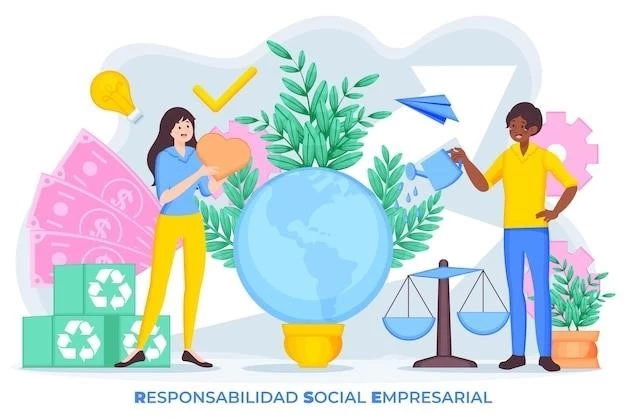Conservation‚ at its core‚ is a deeply ethical endeavor. It compels us to confront complex questions about our relationship with the natural world and our responsibilities towards its preservation. While the scientific principles of conservation provide the tools and knowledge for action‚ ethical considerations guide our decision-making processes and shape our understanding of what we ought to conserve and why.
The Ethical Foundations of Conservation
Several key ethical principles underpin the field of conservation:
- Intrinsic Value of Nature: This principle asserts that nature‚ and all its components‚ possess inherent worth independent of their utility to humans. It challenges the anthropocentric view that nature’s value lies solely in its instrumental uses‚ such as providing resources or ecosystem services. Acknowledging the intrinsic value of nature implies a moral obligation to protect it for its own sake‚ regardless of its benefits to humanity.
- Biodiversity Preservation: Maintaining the variety and variability of life on Earth is crucial for ecological integrity and resilience. Ethical considerations emphasize the interconnectedness of species and ecosystems‚ highlighting our responsibility to protect the intricate web of life from human-induced threats such as habitat loss‚ climate change‚ and invasive species.
- Sustainability: This principle emphasizes the importance of meeting present needs without compromising the ability of future generations to meet their own. Ethical conservation promotes practices that ensure the long-term health of ecosystems and the equitable distribution of resources across time and generations.
- Respect for Indigenous Rights and Knowledge: Indigenous communities often hold deep-rooted connections to their lands and possess invaluable traditional ecological knowledge. Ethical conservation recognizes the importance of respecting indigenous rights‚ including land tenure and cultural practices‚ and integrating their knowledge systems into conservation strategies.
- Justice and Equity: Conservation efforts should strive for fairness and equity in their distribution of costs and benefits. This includes addressing historical injustices‚ such as the disproportionate impact of environmental degradation on marginalized communities‚ and ensuring that conservation initiatives do not exacerbate existing inequalities.

Navigating Ethical Dilemmas in Conservation
The practice of conservation is rife with ethical dilemmas that require careful consideration and often involve trade-offs. Some prominent examples include:
- Human-Wildlife Conflict: Balancing the needs of growing human populations with the conservation of wildlife populations can present difficult choices‚ particularly when human livelihoods or safety are at stake. Ethical frameworks can help guide decisions about wildlife management‚ habitat protection‚ and the mitigation of human-wildlife conflict.
- Resource Allocation: Limited resources for conservation necessitate prioritization‚ forcing difficult decisions about which species‚ ecosystems‚ or conservation projects should receive funding and attention. Ethical considerations‚ such as prioritizing species based on their ecological importance or focusing on areas with high conservation value‚ play a crucial role in resource allocation.
- Intervention vs. Non-Intervention: The extent to which humans should intervene in natural processes is a recurring ethical debate in conservation. While active management strategies‚ such as captive breeding programs or ecosystem restoration‚ can be crucial for conserving threatened species and ecosystems‚ they also raise questions about human interference in natural selection and the potential for unintended consequences.
The Evolving Ethical Landscape of Conservation
As the field of conservation evolves‚ so too do the ethical considerations that shape its practice. Several emerging trends are shaping the ethical landscape of conservation:
- Compassionate Conservation: This movement emphasizes the ethical treatment of individual animals and promotes conservation approaches that minimize harm and prioritize animal welfare. It challenges traditional conservation practices that may involve lethal control methods or prioritize species over individual well-being.
- Climate Change Ethics: The urgency of addressing climate change has brought new ethical dimensions to conservation. Questions arise about our responsibilities to future generations‚ the ethical implications of assisted migration strategies‚ and the just allocation of resources for climate change adaptation and mitigation.
- Technological Advancements: New technologies‚ such as gene editing and artificial intelligence‚ offer promising tools for conservation but also raise ethical concerns. The potential for unintended ecological consequences‚ the blurring of boundaries between natural and artificial‚ and the equitable access to and governance of these technologies are all critical ethical considerations.

Conclusion
The ethics of conservation are complex and multifaceted‚ requiring ongoing reflection and dialogue. By engaging with ethical principles‚ navigating dilemmas thoughtfully‚ and adapting to emerging challenges‚ we can strive towards conservation practices that are both scientifically sound and ethically grounded. As stewards of the planet‚ we have a moral obligation to protect the natural world for present and future generations‚ recognizing the intrinsic value of nature and our interconnectedness with all forms of life.










